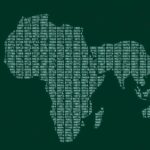U.S. Tariffs Target Solar Imports from Southeast Asia Amid Alleged Subsidy Issues
The U.S. Commerce Department has proposed preliminary tariffs of up to 23 percent on solar imports from Malaysia, Thailand, Cambodia, and Vietnam due to allegations of illegal government subsidies benefiting these imports. This decision is seen as a victory for U.S. solar manufacturers, who argue that these cheap imports jeopardize their businesses and investments in the domestic market.
The United States Department of Commerce has proposed preliminary tariffs on solar imports from Malaysia, Thailand, Cambodia, and Vietnam, potentially reaching as high as 23 percent. This proposition stems from an investigation that suggests these countries’ solar equipment has been benefiting from illicit governmental support. This development is seen as a significant win for American solar panel manufacturers, who assert that inexpensive imports undermine their businesses and threaten ongoing investments aimed at developing a robust solar supply chain in the U.S. They contend that these foreign products are sold at prices that do not reflect their actual production costs due to these unfair subsidies. The nations in question represent a substantial portion of solar cell and module imports to the United States. Consequently, the immediate imposition of countervailing duties will lead to escalated costs for U.S. renewable energy developers relying on these imports. Additionally, retroactive duties will be applicable for certain imports from Thailand and Vietnam, effective from early July, marking a challenging scenario for businesses sourcing their solar equipment from these regions. This investigation is a continuation of the efforts by U.S. manufacturers to address competition from international counterparts, following similar tariffs imposed on solar products imported from China approximately a decade ago. Chinese firms, responding to these tariffs, have relocated manufacturing operations to other Southeast Asian countries to mitigate the impact. Key players advocating for these claims include prominent companies within the American solar manufacturing sector, such as First Solar Inc., Hanwha Qcells USA Inc., and Mission Solar Energy LLC.
This investigation and the proposed tariffs are set against a backdrop of intensifying competition in the solar panel manufacturing sector. U.S. manufacturers have increasingly complained about the influx of low-cost solar imports from Southeast Asian nations benefiting from government subsidies. The Solar Alliance, representing American manufacturers, claims that these practices distort market prices and harm their domestic operations. This latest case highlights a strategic maneuver by the U.S. government intended to bolster local manufacturing and secure the domestic solar supply chain, which has gained urgency amid a global shift towards renewable energy sources.
In summary, the proposed preliminary tariffs on solar imports from several Southeast Asian nations reflect ongoing tensions in international trade within the solar manufacturing sector. With domestic manufacturers alleging unfair competitive practices and government subsidies, the U.S. government’s actions may lead to increased costs for renewable developers, which could ultimately impact the overall solar market dynamics in the country.
Original Source: www.scmp.com








Post Comment